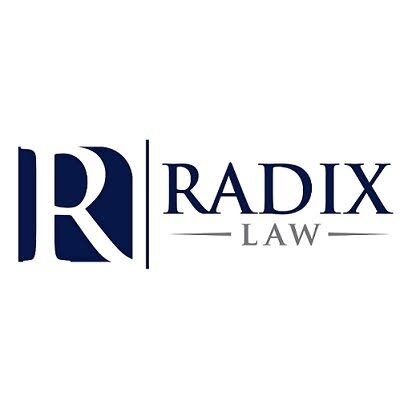Best Conveyancing Lawyers in Scottsdale
Share your needs with us, get contacted by law firms.
Free. Takes 2 min.
Free Guide to Hiring a Real Estate Lawyer
List of the best lawyers in Scottsdale, United States
About Conveyancing Law in Scottsdale, United States
Conveyancing is the legal process of transferring ownership of real property from one party to another. In Scottsdale, United States, conveyancing involves a set of procedures including preparing, reviewing, and executing legal documents related to property sales or purchases. This process ensures that ownership is transferred lawfully, any outstanding debts or liens on the property are settled, and both buyer and seller meet their legal obligations. Scottsdale follows Arizona state laws, which establish specific requirements and timelines for property transactions, disclosures, and recordation of deeds.
Why You May Need a Lawyer
While some real estate transactions in Scottsdale may appear straightforward, legal complexities can easily arise. You may need the help of a conveyancing lawyer in situations such as:
- Reviewing or drafting purchase agreements to protect your interests
- Resolving issues with title defects, liens, or encumbrances
- Handling disputes between buyers, sellers, or third parties
- Ensuring correct completion and filing of documents with local authorities
- Managing the legalities of sales involving trusts, estates, or businesses
- Assisting with short sales, foreclosures, or other distressed property transactions
A lawyer can help avoid potential pitfalls, clarify your rights and responsibilities, and ensure the entire transaction proceeds smoothly under local legal standards.
Local Laws Overview
Conveyancing in Scottsdale operates under federal and Arizona state law, with certain local practices and regulations to consider. Here are key aspects relevant to the area:
- Arizona requires the conveyancing of property to be documented via a warranty deed, special warranty deed, or quitclaim deed, which must be notarized and recorded with the Maricopa County Recorder's Office.
- Sellers must disclose known material defects about the property using the Arizona Association of Realtors Seller Property Disclosure Statement (SPDS).
- Title companies or escrow agents often dominate the process, handling money, deeds, and coordinating with lenders, but legal advice is essential for complex matters.
- Arizona is a community property state, with implications for marital property sales and transfers.
- Local ordinances may influence property use, zoning, and redevelopment projects, all of which should be reviewed as part of the due diligence process.
Understanding these legal frameworks is crucial to a successful conveyancing transaction in Scottsdale.
Frequently Asked Questions
What does a conveyancing lawyer do in Scottsdale?
A conveyancing lawyer oversees the legal process of property transfer, ensuring all legal documents are correct and that the transaction complies with applicable local and state laws. They also manage issues with titles, disclosures, and any disputes that arise.
Is using a lawyer required for property transactions in Scottsdale?
Arizona law does not require a lawyer for all property sales, but legal advice is highly recommended, especially in complex transactions or where disputes or title issues are present.
How long does the conveyancing process usually take?
The process typically takes about 30 to 60 days from contract to closing, depending on financing, inspections, and other contingencies that may need to be resolved.
What disclosures are sellers required to make?
Sellers must disclose known material defects such as roof problems, plumbing issues, infestations, or any facts that may significantly affect the property’s value or desirability, using the required Arizona disclosure forms.
What role does a title company play in Scottsdale conveyancing?
A title company conducts title searches to verify ownership and checks for liens or encumbrances. They also issue title insurance and often act as escrow agents during the transaction.
How are legal disputes handled during the conveyancing process?
If disputes arise regarding contracts, property boundaries, or misrepresentations, a conveyancing lawyer can negotiate solutions, provide representation, or facilitate dispute resolution or litigation if necessary.
Are there special rules for purchasing property held in a trust or estate?
Yes, additional legal steps may be required to verify authority to sell or transfer property from a trust, estate, or on behalf of an incapacitated owner. Legal guidance ensures these complex transactions proceed lawfully.
Can a foreign national purchase property in Scottsdale?
There are no restrictions on foreign nationals buying property in Arizona, but there may be extra documentation and tax considerations involved. Legal counsel is advised for these situations.
What is the cost of hiring a conveyancing lawyer?
Fees vary depending on the complexity of the transaction. Lawyers may charge a flat fee, hourly rate, or percentage of the property value. Obtain a clear estimate up front before retaining services.
What happens at closing, and do I need to attend?
At closing, all documents are signed, funds exchanged, and the deed is recorded. While you are usually required to attend, your lawyer can attend or facilitate the process on your behalf if necessary.
Additional Resources
For more information on conveyancing or property transactions in Scottsdale, these organizations and offices can be helpful:
- Arizona Association of Realtors - Guidance and standard forms
- Maricopa County Recorder's Office - Recording deeds and property documents
- Arizona Department of Real Estate - Licensing and consumer protection
- Maricopa County Assessor's Office - Property tax assessments
- Legal Aid programs in Arizona - Free or low-cost legal advice for qualifying individuals
Next Steps
If you need legal assistance with conveyancing in Scottsdale, begin by assessing the complexity of your transaction. Gather all relevant property documents, contracts, disclosures, and correspondence. Research and reach out to a conveyancing lawyer or law firm experienced in Arizona real estate law. Schedule a consultation to get an overview of your legal needs, clarify the process, and develop a plan to proceed with your transaction safely and efficiently. Taking early action and working with an expert can help you avoid costly mistakes and provide peace of mind throughout the transaction.
Lawzana helps you find the best lawyers and law firms in Scottsdale through a curated and pre-screened list of qualified legal professionals. Our platform offers rankings and detailed profiles of attorneys and law firms, allowing you to compare based on practice areas, including Conveyancing, experience, and client feedback.
Each profile includes a description of the firm's areas of practice, client reviews, team members and partners, year of establishment, spoken languages, office locations, contact information, social media presence, and any published articles or resources. Most firms on our platform speak English and are experienced in both local and international legal matters.
Get a quote from top-rated law firms in Scottsdale, United States — quickly, securely, and without unnecessary hassle.
Disclaimer:
The information provided on this page is for general informational purposes only and does not constitute legal advice. While we strive to ensure the accuracy and relevance of the content, legal information may change over time, and interpretations of the law can vary. You should always consult with a qualified legal professional for advice specific to your situation.
We disclaim all liability for actions taken or not taken based on the content of this page. If you believe any information is incorrect or outdated, please contact us, and we will review and update it where appropriate.










